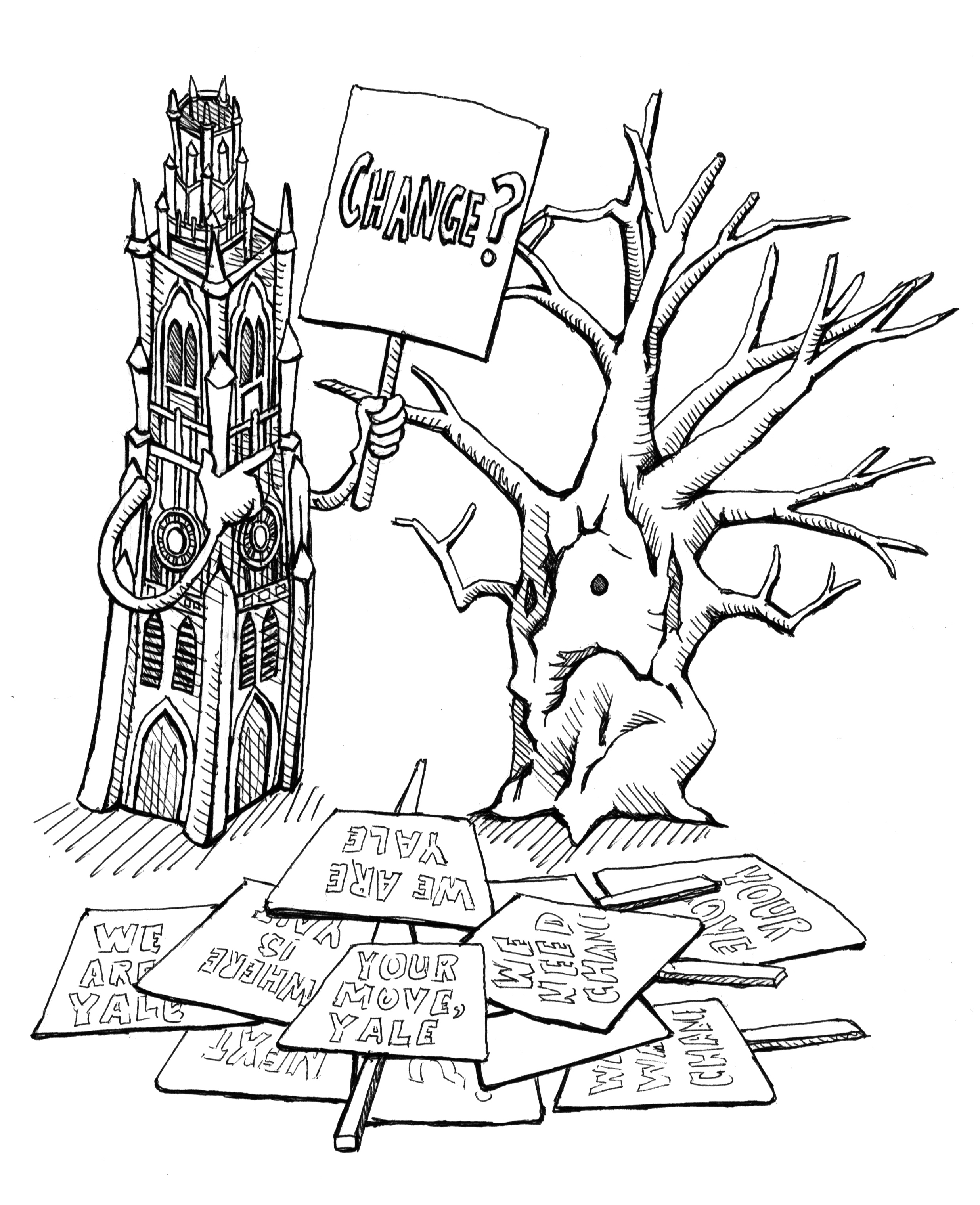
This has been a banner year for campus activism at Yale. Between protests over racial injustice, free speech and the pitfalls of Greek life, Yale’s been pretty busy. But now that things have quieted down, has anyone been keeping track of the results of these demonstrations? The answer, of course, is a resounding no.
Consider the uproar over mental health last year. After the passing of Luchang Wang ’17, Yale was taken to task for its nasty habit of pressuring suicidal students to go back home instead of providing proper counseling. And layers upon layers of bureaucratic red tape obstructed the lucky few who did manage to access mental health services.
A large YCC panel and a series of emails from the Yale administration promised reform: Yale would hire more therapists, make scheduling appointments easier and even create a student advisory committee on the topic. And that was that. Since then, Yale’s hired the equivalent of two-and-a-half full-time mental health professionals, a hotline has been set up and that committee was indeed created. Everybody’s satisfied. But wait a minute, what actually changed? I have no idea whether the original problem — that students experiencing mental health issues feared being forcibly sent home — was actually solved.
Yale has been equally quiet about Greek life as of late. Only last semester, allegations about racism at a fraternity party set off a national media firestorm. The campus was up in arms merely months ago, but you’d be hard pressed to find any evidence of that today. An investigation concluded that no disciplinary action was necessary towards the fraternity, but that sort of misses the point.
We may have concluded that there was no wrongdoing at the party, but the larger issue was that the accusations were believable in the first place. Sure, there’s now a YCC Greek life task force, but again, what’s actually changed on campus? Despite all the outrage last semester, High Street is now busier than ever; what’s particularly strange is that every single fraternity on campus reported having more rushes than the previous year!
It seems that the easiest way to placate angry Yalies is to throw us a bone or two — perhaps increase funding to a few cultural houses or create a student committee — and wait out the storm. Every major protest on campus follows a remarkably similar pattern: something terrible happens, students get angry, the University issues a campuswide email apologizing and promising changes and then, about two weeks later, life moves on as if nothing happened. Sprinkle in an impassioned op-ed or two in the News and perhaps a march, and we’ve got ourselves the recipe for the quintessential Yale activist movement. I wouldn’t be surprised if Yale budgeted funding to deal with such protests each year.
The real tragedy, however, is that there are ton of issues at Yale that don’t even get the lip service of a committee or a genuine campus discussion. A survey by the Association of American Universities released this academic year noted that nearly a third of women on campus have been victims of sexual assault. That’s a striking figure. Nearly three-quarters of women at Yale also reported experiencing some type of harassment. And to cap it off, on Tuesday, Yale reported that it had received 78 complaints of sexual misconduct last semester, an all-time high for the University. And yet, since informing the Yale community about the results of the AAU Survey in September, there’s been a deafening silence from Woodbridge Hall about sexual misconduct on campus. What are all those task forces doing now?
I’ve written previously about my distaste for “slacktivism,” but ineffective activism is arguably just as bad. The student body’s collective attention span is about as long as that of a goldfish, and we really don’t follow up on our demands. If we’re unwilling to hold Yale accountable for the issues that we protest about, what’s the point of holding 1,000-person rallies or hosting teach-ins? The myopic nature of these protests indicates one of two things: Either we Yalies aren’t genuinely interested in the issues we are protesting about or we’re simply lashing out without much thought about how to achieve results. I sincerely hope it’s not the latter. Let’s not forget that real change requires real commitment.
Shreyas Tirumala is a sophomore in Trumbull College. His column usually runs on alternate Fridays. Contact him at shreyas.tirumala@yale.edu .







